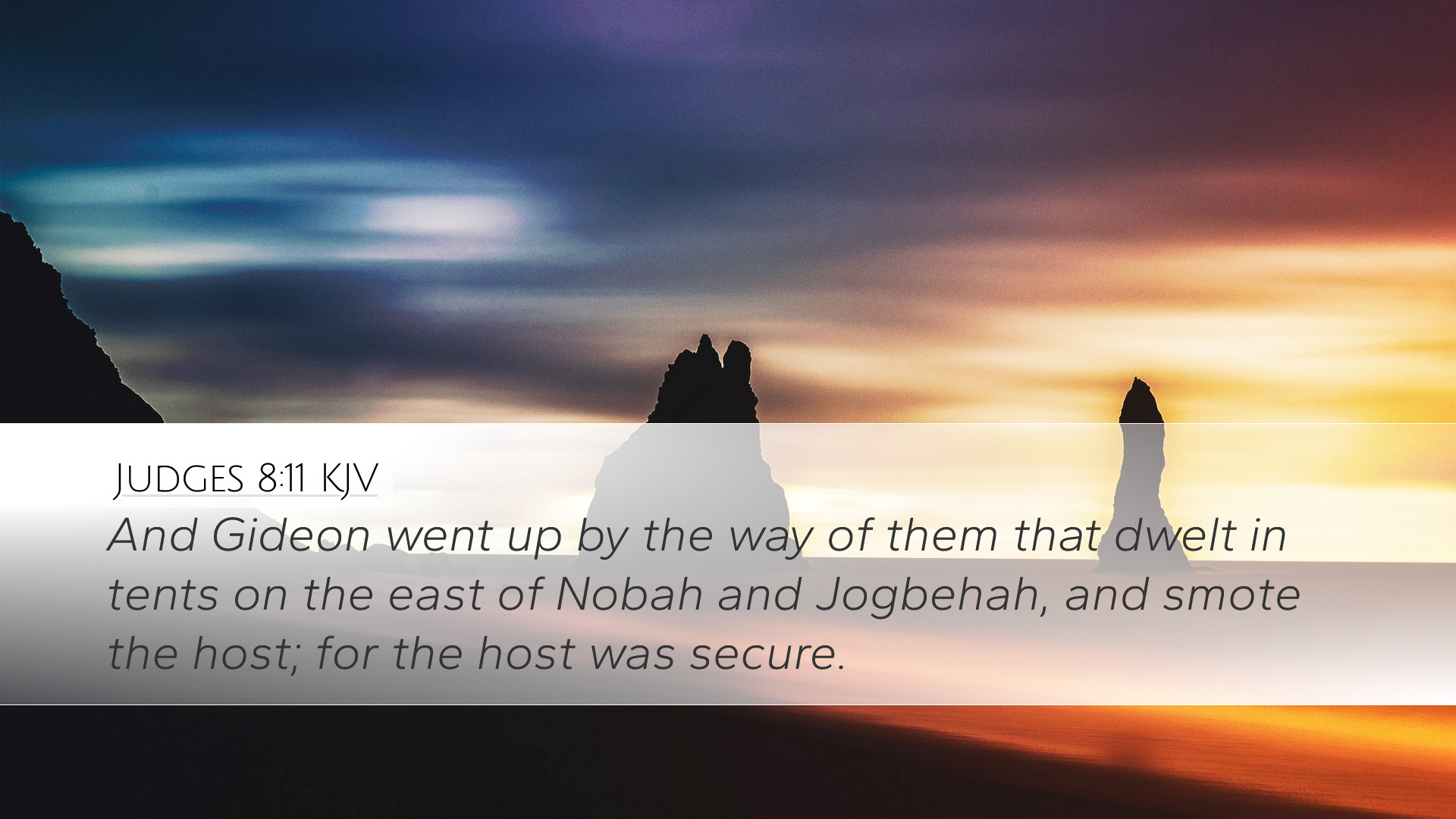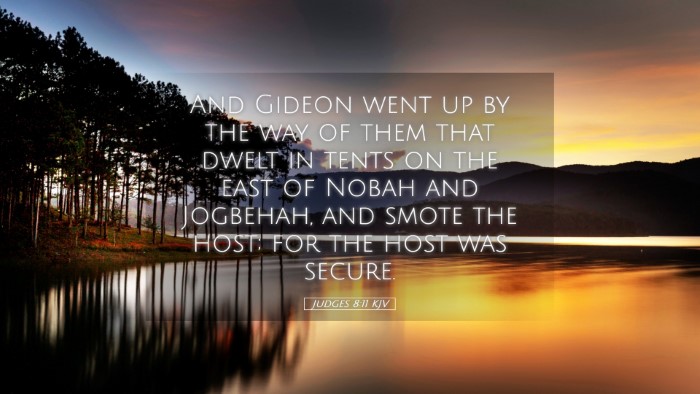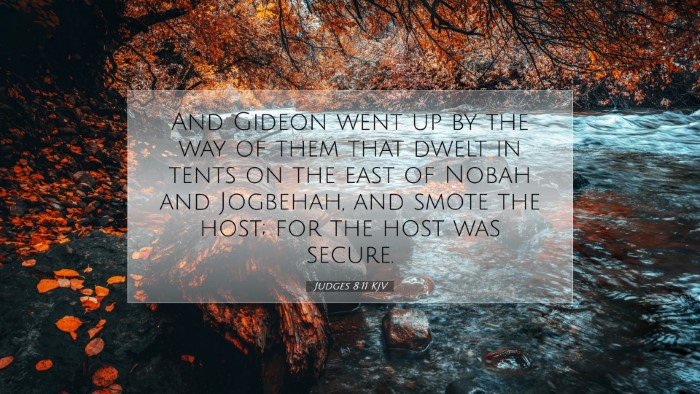Bible Commentary on Judges 8:11
Judges 8:11 states, "And Gideon went up by the way of them that dwelt in tents on the east of Nobah and Jogbehah, and smote the host: for the host was secure." This verse transitions us into a critical moment in the narrative of Gideon's leadership during a tumultuous period in Israel's history.
Contextual Background
In Judges, we observe a cyclical pattern of Israel's behavior: sin, oppression, repentance, and deliverance. Gideon, one of the judges, is emblematic of divine intervention amid Israel's moral and spiritual decline. His leadership not only signifies military prowess but also reflects God's covenant faithfulness.
Gideon's Strategic Leadership
As we analyze the text, we observe various themes associated with Gideon's strategy:
- Geographical Insight: The mention of "the way of them that dwelt in tents" signifies a strategic maneuver. This area, likely inhabited by nomadic tribes, provided Gideon an advantageous position.
- Vigilance of the Enemy: The choice to strike when "the host was secure" is a testament to the importance of timing in military engagements. Commentators like Adam Clarke emphasize the significance of exploiting an enemy's complacency.
Insights from Commentators
Matthew Henry notes that Gideon's approach embodies both divine guidance and personal bravery. He acknowledges that Gideon was both victorious and shrewd, highlighting that leadership involves both spiritual and tactical dimensions.
Albert Barnes expands on the theme of divine empowerment, pointing out that Gideon's success was attributed to God's direction. Barnes stresses that the security of the enemy aligned with the notion of God's providence; He often allows enemies to grow complacent just before their downfall.
Adam Clarke provides a detailed examination of the phrase "smote the host," interpreting it as an act of divine deliverance. Clarke emphasizes that Gideon's military action illustrates the fulfillment of God's promises and His active role in aiding the Israelites against their oppressors.
Theological Implications
Analyzing Judges 8:11 provides several theological reflections for both scholars and pastors:
- Divine Providence: The verse reinforces the concept of God's sovereignty in determining the outcomes of battles. It suggests that believers ought to seek divine guidance in perilous situations.
- Complacency of Enemies: It serves as a warning against spiritual complacency. Just as the Midianites were caught off guard, so can modern believers fall into the trap of doubt and inactivity when they rely on past experiences rather than divine reliance.
- Role of Leadership: Gideon's action emphasizes the characteristics of effective leadership: courage, strategic thinking, and reliance on God's empowerment. For contemporary leaders, this verse serves as an encouragement to combine divine faith with practical decision-making.
Application for Today's Believers
The implications of Judges 8:11 extend beyond its immediate historical context. For pastors and theologians, the narrative of Gideon invites a deeper exploration of how God empowers individuals to act decisively in faith:
- Faith in Action: Every believer is called to respond to God’s call with practical steps that align with His will. Gideon’s actions prompt believers to evaluate how faith translates into tangible outcomes.
- Awareness of Spiritual Warfare: Just as Gideon faced formidable foes, believers are reminded of the spiritual battles they encounter. Awareness of the enemy's tactics can lead to victory through strategic prayer and action.
- Divine Strength: Gideon’s success was not his own but rooted in his dependence on God. Pastors and students of the Bible may find encouragement in recognizing that their victories in ministry arise from their relationship with God.
Conclusion
Judges 8:11 is a profound verse that encapsulates the themes of divine intervention, leadership, and the critical importance of timing. The insights derived from public domain commentaries serve to enrich our understanding of this narrative, inviting us to reflect on the nature of faith-driven actions in our own lives. As we examine Gideon's story, may we be encouraged to trust in God's providential care and act boldly in our calling.


